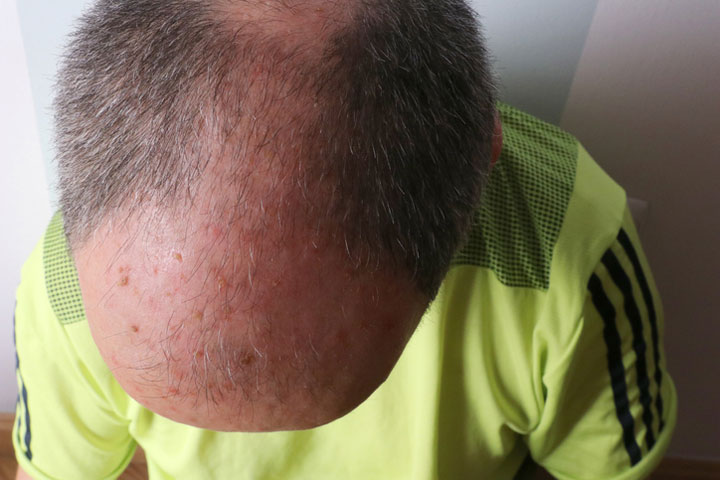Actinic Keratoses Treatment
Actinic Keratoses (or “AKs”), are precancerous lesions that frequently develop on patients with chronic ultraviolet (usually sun) exposure and fair skin. Common locations for these spots include the scalp (of bald individuals), face, ears and forearms and they have a tendency to come and go. Sometimes they can have a “rough” or “gritty” texture, but quite often they are discovered by a trained dermatology provider without the patient even aware because they do not itch or cause pain.
The presence of these spots indicates a higher warning for the development of skin cancer, in particular squamous cell and basal cell carcinoma. These two cancers are occurring at epidemic proportions, and these warning lesions can help us make a plan to prevent the progression to cancer. At Michigan Dermatology Institute, we want to help you prevent skin cancer with early detection and treatment and keep you in skin that is cancer free.
At Michigan Dermatology Institute, acne is our passion. We pride ourselves on preventing the devastating consequences of this condition, and making you feel confident in your own skin. We promote a customized approach to treat your acne, which starts with a thorough medical evaluation. Call today to schedule your appointment, and let’s get your skin back to where you want it.
A: Fortunately, the answer is no, the majority of them are treated and do not continue on to become a cancer. However, they have a much higher risk of becoming cancer than the skin that doesn’t have these spots. AKs indicate that significant ultraviolet exposure has damaged the skin with mutations that can progress into cancer, and chronic surveillance and treatment can help to catch things early.
A: Treatment starts with a comprehensive sun protection plan with your dermatologist. There are many options available to treat active spots, including topical creams, in-office treatments and procedures. Each treatment varies with regards to time, effectiveness and cost, so a thorough discussion about the risks/benefits of each treatment should be a part of your comprehensive management strategy.
A: Over time, with good sun protection and skin management, these spots have a chance to decrease and stop forming. This depends on many factors, including your own skin’s ability to fight off the damage it has taken over the years. At Michigan Dermatology Institute, preventing skin cancer is our mission and helping you formulate a plan for this is our passion.


